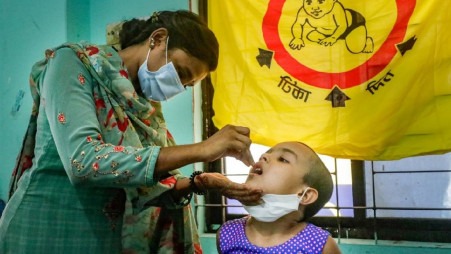Nipah Virus: Awareness Over Fear to Combat This Deadly Threat

- Update Time : Sunday, December 29, 2024

Nipah virus, a zoonotic disease that spreads from animals to humans, has become a significant health concern in Bangladesh, particularly during winter. While bats are the primary carriers, human-to-human transmission is also possible. With a high fatality rate of 40-75%, Nipah virus outbreaks demand urgent public awareness and preventive measures.
What is Nipah Virus?
The Nipah virus was first identified in 1999 in Malaysia’s Kampung Sungai Nipah village, affecting pig farmers and nearly collapsing the region’s pork industry. In Bangladesh, the virus was detected in 2001 and has caused yearly outbreaks since then.

Symptoms and Risks
Nipah infection symptoms range from mild fever and cough to severe encephalitis, leading to confusion, unconsciousness, and even death. Survivors often face long-term neurological complications. Symptoms usually appear 5-14 days after exposure but can remain dormant for up to 45 days.
The Role of Date Palm Sap
Raw date palm sap, a winter delicacy in Bangladesh, is closely associated with Nipah virus transmission due to contamination by bats. Consuming sap or fruits tainted by bat saliva, urine, or droppings significantly increases the risk.
Preventive Measures

Since there is no vaccine or specific treatment for Nipah virus, prevention remains crucial. Key measures include:
- Avoiding raw date palm sap; opt for boiled sap or jaggery-based products.
- Covering sap collection pots to prevent contamination by bats.
- Washing fruits thoroughly and discarding partially eaten ones.
- Maintaining strict hygiene and medical safety while caring for infected individuals.
- Seeking immediate medical attention if symptoms arise.
Community Responsibility
By following these precautions, the risk of Nipah virus transmission can be significantly reduced. The virus requires vigilance, not fear, to combat its deadly effects.














Leave a Reply